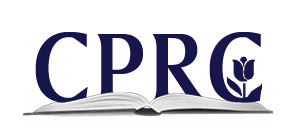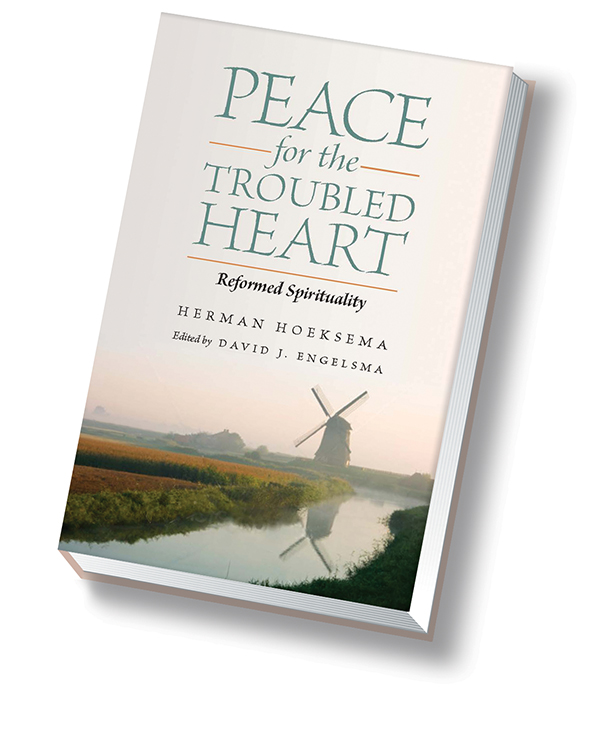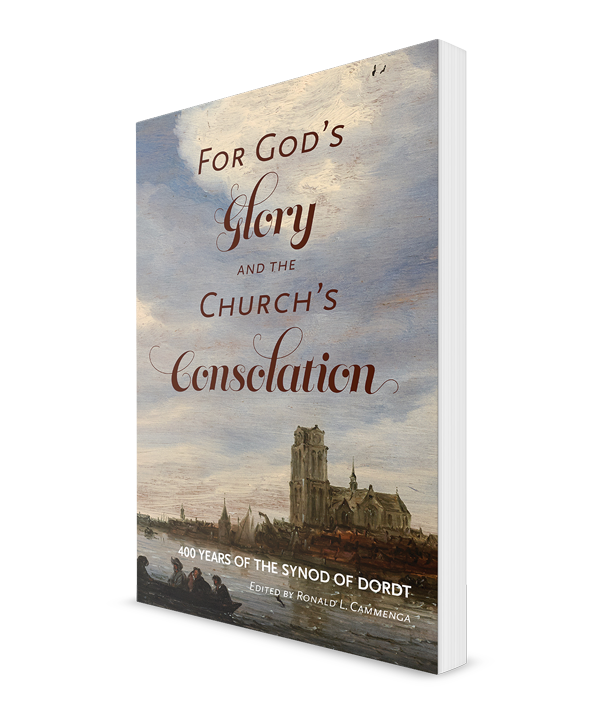
Covenant Protestant Reformed Church Ballymena, NI
February 20, 2020
Dear saints in the Protestant Reformed Churches,
Due to the pressure of work—mostly good, beneficial, and rewarding work—it is now six months since my last letter. The bimonthly epistle is now biannual!
Congregational News
The new church season began in early September with ten catechumens, eight boys and two girls, in three classes: Old Testament Juniors, New Testament Seniors and Essentials of Reformed Doctrine. The covenant children are doing well.
“Saving Faith: A Biblical and Theological Analysis” is the current subject of our Tuesday morning meetings. So far we have treated the significance, necessity, source, subject, object, bond, and knowledge of faith. Our heavenly Father uses our increased understanding of faith to build up our faith in His Son (Eph. 4:13)!
Our Belgic Confession classes concluded their treatment of Article 35 with six classes on “The Holy Supper of Our Lord Jesus Christ,” now in a handy box set entitled, “Who Is to Eat and Drink What?” The subjects addressed are controversial in our day: “Open, Close, or Closed Communion?” “Paedocommunion?” “Private Communion?” “Five Issues Regarding the Wine,” “Leavened or Unleavened Bread?” and “The Partaking of Unbelievers and Believers.”
Our twelve classes so far on “The Magistrates” (Belgic Confession 36) have especially considered the Bible’s teaching against civil rebellion plus Anabaptist political theory, both revolutionary (e.g., the Münster rebellion of 15341535) and pacifist (e.g., the Schleitheim Confession of 1527).
Almost 300 of these wide-ranging doctrine classes on 36 of the 37 articles of the Belgic Confession can be listened to free on-line (https://cprc.co.uk/belgic-confession-class). These are among our website’s most hit audios.
The last two Lord’s day series were “The Idolatry of Micah and Dan” (seven sermons on Judges 17-18, a deeply unsettling passage) and “Practical Christianity” (13 sermons on James 1), treating especially temptation (vv. 2-17) and regeneration with its calling (vv. 18-27). Currently, I am preaching through the wonderful book of Daniel, with its gripping narratives and fascinating eschatology.
David Crossett was installed as a new deacon (15 September, 2019). The Lord in His mercy continues to provide us with faithful officebearers.
“William Tyndale: English Bible Translator” was the subject of this year’s CPRC Reformation day lecture (25 October, 2019). The day before, the Ballymena Guardian carried an advertisement and an article we sent them on this great Reformer who laboured diligently so that the ploughboy would know more of the Scriptures than the corrupt priests. Tyndale was eventually betrayed and martyred for the truth of God’s Word outside Brussels. The speech was accompanied by a PowerPoint presentation (www.youtube.com/ watch?v=np7Bxbspl00).
Various improvements have been made to our church property. Our overflow car park was levelled with road plainings (crushed tarmac)—a very nice job. The inside of the church building was repainted, and we purchased new tables for congregational tea and sandwiches, etc.
New CPRC Website
Mary continues to make a lot of important improvements to our new and secure website (http://cprc.co.uk). She has added “redirects” from all of the 5,000 or so webpages of our old website (apart from the old Sunday bulletins), bringing many more people to the updated and improved version.
On 21 November, Mary added a new statistics plug-in. Since then, these are the top ten countries in terms of people on our website: 1) United States, 2) Indonesia, 3) Hong Kong, 4) Singapore, 5) Brazil, 6) China, 7) United Kingdom, 8) South Africa, 9) Germany, and 10) Philippines. Interestingly, four of the sister churches of our communion are in the top 10: USA, Singapore, UK, and the Philippines. Canada used to be number 10 but it has dropped to number 11.
Various factors are involved in a nation’s hits and, therefore, its ranking, including a combination of the following: the population of a country (e.g., China, USA, and Indonesia have hundreds of millions of people); the number of its professing Christians (e.g., there are many in USA, China, South Africa, and the Philippines); its internet usage (e.g., it is very high in Hong Kong and Singapore); its peoples’ knowledge of English (e.g., it is the main language in USA, UK, and Singapore, and about half of Hong Kongers speak it); and the number of CPRC translations in the language(s) of a country (e.g., we have over 500 articles in Portuguese, the language of Brazil, and a good number in Indonesian, Afrikaans, and German).
At the other end of the scale, we have had three days on which someone from the British Antarctic Territory has had his or her heart warmed by the materials on our website. Someone from the Vatican was on www.cprc.co.uk. Perhaps it was the Pope?
Those in the UK can now order excellent RFPA books, our CD and DVD box sets, and free pamphlets, and make payments by bank transfer, on the CPRC website. Mary is researching the best way to enable orders (including calculating postage) and receive payments from those in the rest of the world.
The CPRC Sunday services and lectures are now available on a podcast on video and audio. This is not yet the case with our Wednesday night Belgic Confession classes—one of many things to be sorted out in the days ahead.
Others
Mary’s dad, Fred Hanko, went to glory on 28 December, 2019. Her mother, Ruth, was called home earlier in the year (8 February). They were (and are) wonderful people and are sorely missed. Mary and I joined family and friends for Dad’s funeral in Michigan, ably led by Rev. Clay Spronk in Faith PRC (3 January, 2020). Thank you for your prayers and cards.On Sunday, 5 January, I preached twice in Cornerstone PRC— good to see the saints there again—before flying back home from O’Hare Airport the next day.
Rev. Ken Koole kindly preached for the CPRC on 5 January, when we were in Indiana, and 12 January, when we were in the Limerick Reformed Fellowship, for Rev. Martyn McGeown was in Australia speaking in the Evangelical Presbyterian Church in Brisbane and at their youth camp.
I delivered two lectures in South Wales: “The Peace Offering” (5 September, 2019) and “William Tyndale: English Bible Translator” (23 January, 2020). It is always good to bring the truth to, and fellowship with, the saints in Wales.
Since my last letter, we have added 100 translations to our website, including 68 ecumenical creeds in Bulgarian, Haitian Creole, Kazakh, Maori, Mongolian, etc. (https://cprc. co.uk/languages). The others are 11 Hungarian, 7 Tamil (our Reformed forms); 7 Spanish (including those by a pastor in Lima, Peru, who is translating articles on the development of the doctrine of the covenant); 3 German; 3 Russian (the last chapters of Be Ye Holy, so that now all of this BRF book is on-line in Russian); and 1 Romanian (Saved by Grace, an excellent RFPA book by Prof. Cammenga and Rev. Hanko).
The CPRC YouTube page has now reached 300,000 hits (www.youtube.com/cprcni). Stephen Murray has put a lot of work into this over many years. We are adding the Scripture texts in parentheses after the sermon titles for search engine optimization. So far this has been done for the last 600 videos but there are many more yet to do!
The British Reformed Fellowship (BRF) conference booking forms are now available (www.brfconference.weebly.com/booking.html). “Union With Christ” is the theme that will be developed by Prof. David Engelsma and Rev. Andy Lanning in the six main addresses at Castlewellan Castle, Northern Ireland (11-18 July). John William Perkins is to give a special lecture on “Union with the Free Will of Christ in the English Puritans.” Already we have had about 80 confirmed bookings, a lot more than we have had at this stage for any of the 15 previous BRF conferences. A good number of countries will be represented, and it promises to be an enriching time of Christian teaching and fellowship.
May the Lord be with you all,
Rev. & Mary Stewart
 Today, April 10, is Good Friday, the day the Christian church remembers the death and crucifixion of her Savior, Jesus Christ.
Today, April 10, is Good Friday, the day the Christian church remembers the death and crucifixion of her Savior, Jesus Christ.



 From the
From the 
















